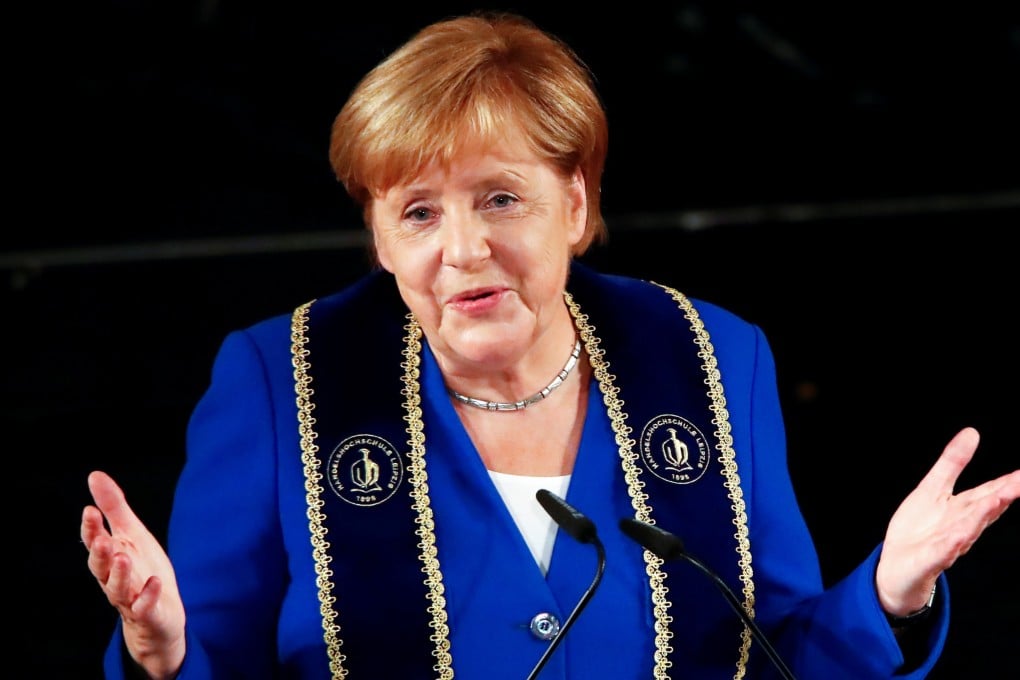German Chancellor Angela Merkel expected to use China visit to push EU trade deal
- Two sides likely to seek progress on trade and investment during three-day trip, but sensitive issues may be a stumbling block
- Beijing may test Berlin’s commitment to strict investment screening rules

German Chancellor Angela Merkel is expected to push for progress on an EU-China trade deal during a three-day visit to China this week, according to analysts.
Merkel will arrive in Beijing on Thursday for talks with business and political leaders before she travels to the city of Wuhan in Hebei province, the German foreign ministry said.
Economic troubles would push the two nations to make progress on trade and investment, but they may hit a stumbling block over sensitive issues, according to China watchers.
Mikko Huotari, deputy director of the Mercator Institute for China Studies, said Merkel’s trip came as the view of China in German political circles was becoming more critical, with issues over Chinese telecoms giant Huawei Technologies, the treatment of Uygurs in Xinjiang and the anti-government protests in Hong Kong.
He said Merkel should raise the issue of Hong Kong in her talks with Chinese officials, adding that Beijing could not be seen as a reliable partner if did not uphold the city’s freedom and autonomy.